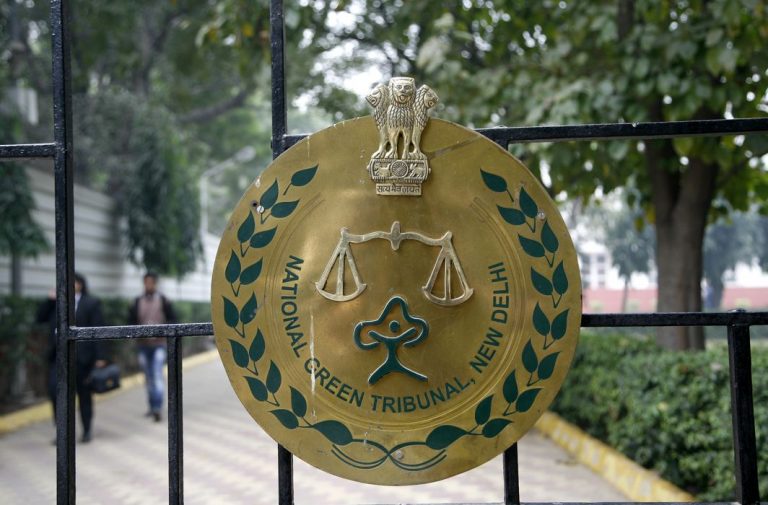
The National Green Tribunal has granted six weeks to the Ministry Of Environment, Forest and Climate Change to put in a place a policy would govern the use and disposal of solar panels coated with Antimony
It was in August 2017 that advocate Niharika filed a petition before the National Green Tribunal wherein she expressed serious concern over the growing use of solar modules and panels under the National Solar Mission and the adverse impact that it has on the environment. The petitioner had highlighted that, the “solar glass containing Antimony is being widely used in the manufacture of solar modules/photovoltaic (PV) modules which is highly dangerous and emits dangerous substance”. The petitioner prayed for NGT to issue directions to the concerned authorities, to monitor and take remedial measures to limit the damage being caused to the environment and detailed action plan to deal with the adverse effect of solar panels, if any. The petitioner also prayed that, directions be issued to the Central Pollution Control Board to amend the E-waste management rules, 2016 so as to bring Antimony within the purview of the rules and to permit the import of only those solar modules that do not contain Antimony.
Antimony is a silvery white heavy metal which is present in glass; it is used for the purpose of manufacture of solar panels. The cause of concern with regard to the use of antimony coated solar panels is that, after the life cycle of these solar panels is over, what remains, cannot be recycled, thus generating a considerable amount of waste. The disposal of such waste is another major issue that needs to be dealt with. Approximately 90% of the solar panels are made up of glass; however, it cannot be recycled as it contains pollutants such as plastic, lead, cadmium and antimony. In fact, the International Renewable Energy Agency has estimated that by the year 2050, the amount of solar panel waste generated throughout the world, could reach 78 million metric tons. Since the waste generated by these solar panels is not recyclable, the panels are dismantled, crushed and disposed off in landfills, which is also cause of grave concern as when the panels break, toxic material can leach into the soil, thereby causing environmental pollution.
The NGT recognized this as a serious issue, which is likely to have a severe adverse impact on the environment. Thus, an expert committee was constituted by the tribunal comprising of Professor Vinay Anant Juvekar, a senior scientist to be nominated by the Central Pollution Control Board, a senior scientist to be nominated from the Ministry of New and Renewal Energy. The expert committee was required to determine whether Antimony is toxic or not, whether textured glass contains Antimony, what is the extent of Antimony leaching out of the glass in a landfill and what is the permitted limit of Antimony in the drinking water. Apart from this, the committee was to examine the overall adverse effects of antimony on the environment and any remedial measures which are required to be taken. Intake of antimony even in trace amounts, can have a negative impact on the health of people, it can cause respiratory irritation, pneumoconiosis, irritation of gastrointestinal tract which can result in vomiting, abdominal cramps, diarrhea and cardiac toxicity.
In January this year, the NGT noted that there are no rules, regulations or policies in place to regulate the disposal of Antimony coated solar panels. It sought minimum time schedule that would be required by the authorities to put the relevant policies in place. Till date, no policies have been framed by the concerned ministries. The ministry of New and Renewable Energy has informed the tribunal that, they have received the report of the expert committee that was constituted by the tribunal and they are currently in the process of framing a blue print on the issue. After the said blueprint is prepared it would be sent to the Ministry of Environment, Forest and Climate Change. The MoEF & CC would then formulate and lay down a policy that would regulate the use and disposal of antimony coated solar panels. Since the issue affects the larger public interest, taking into consideration the nature of the issue, the tribunal has directed the Ministry of Environment, Forest and Climate Change, to hear the applicant before finalizing the policy. The ministry of New and Renewable Energy has to complete the blue print and send it to the the Ministry of Environment, Forest and Climate Change within a period of three weeks, after which, the concerned ministry would lay down the policy regulating use and disposal of Antimony coated solar panels within 3 weeks.
—India Legal Bureau

